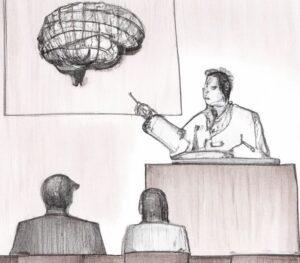I’ve been asked dozens of times how to get free lawyers when you can’t afford to pay one. You may be represented or assisted by a lawyer in several ways that don’t involve paying money out of your pocket.
First, let me make one thing clear. Lawyers need to be paid. They have families, bills, rent, mortgages, car payments, retirement savings, weddings,… just like the rest of us. In addition, they often invest real money and resources into cases to achieve the best outcome for their clients. The real question is who pays the lawyer. Often, it is not the plaintiff or defendant.
Criminal Defense
The defense in a criminal case is often very expensive. Wealthy individuals like Donald Trump, OJ Simpson, Martha Stewart and others pay (or paid) millions of dollars for their defense. Defending against criminal charges are often a financial disaster for ordinary people. Even a simple DUI defense can cost over $10,000 dollars. Criminal defense attorneys are paid by the defendant. In some cases, the accused cannot afford an attorney and they are provided an attorney paid by the state. In some high-profile cases, certain celebrity lawyers will take cases for no charge just for the media time and attention.
Class Action
These are lawsuits filed against a company or entity by one or more plaintiffs who represent a group of people. This is where a group (or class of people) are damaged by a product or company, and a single lawsuit is filed on behalf of the entire class. The members of the class can number in the millions. None of them pay the lawyers. It may feel like class members are getting free lawyers, but lawyers are paid by the company as part of the settlement. In the case of a class action lawsuit, individuals do not need to retain their own lawyers, they are all represented by the same attorneys. A member of the class may exclude themselves from the class action suit and hire their own attorneys if they desire.
Personal Injury Lawsuits
You’ve probably seen or heard the advertisements for lawyers who want your case if you have been in a car accident or are injured at work. Personal injury lawyers want these cases because they can involve substantial amounts of money, and insurance is usually involved. These lawyers generally work on contingency, meaning you pay nothing unless they win. And then they take a defined amount out of the settlement to pay themselves. So, in effect, you pay nothing out of pocket for their services.
Other Civil Lawsuits
In many cases, contracts or laws may prescribe that one party or the other pays the legal fees for the other. This often happens in divorces where a judge will rule that the husband or wife must pay the legal fees for the other side. Many contracts have clauses that specify the losing party pays the legal fees for both sides. Corporate lawyers often negotiate over contracts and add or remove these clauses. There are cases where a judge deems a lawsuit as an abuse of process or harassment and orders one of the parties to pay all the legal fees and court costs.
Pro Bono
Understanding Pro Bono Services. Pro bono publico, commonly known as pro bono and to some known as free lawyers, is a Latin term that translates to “for the public good.” In the legal context, it refers to professional legal services provided voluntarily and without payment or at a reduced fee to individuals, nonprofits, and community organizations. The American Bar Association (ABA) recommends that lawyers provide 50 hours of pro bono services annually, fostering a pool of resources for those in need.
Step 1: Assessing Eligibility for Pro Bono
Legal Aid Legal aid organizations typically offer free legal services to people with low incomes. Eligibility often hinges on your income level, which generally must fall below a certain threshold that is a percentage of the federal poverty line. Additionally, your legal issue must be handled by the organization, such as family law, housing, or public benefits cases.
Step 2: Locating Legal Aid Organizations
Start by searching for local legal aid offices, which are present in most communities. The Legal Services Corporation (LSC) funds many of these organizations, offering services ranging from advice to full representation. Websites like the LSC’s or the National Legal Aid & Defender Association can help you find a legal aid office in your area.
Step 3: Exploring Community Legal Clinics
Many law schools run legal clinics where law students, supervised by licensed attorneys, provide free legal assistance. These clinics can be a valuable resource for various legal matters, including civil rights, immigration, and landlord-tenant disputes.
Step 4: Using Online Legal Services
Online platforms can connect you with lawyers who are willing to work pro bono. Websites like the ABA’s Free Legal Answers provide a space to ask questions and receive advice from volunteer attorneys.
Step 5: Reaching Out to Bar Associations
Local bar associations often have pro bono programs or lawyer referral services. These programs can connect you with attorneys willing to take on cases free of charge for those who qualify.
Step 6: Considering Law Firm Pro Bono Programs
Some private law firms have pro bono departments dedicated to taking on cases for the public good. While these opportunities may be more limited, they are worth exploring, particularly for cases that might have a broader social impact.
Contingency Fee
Understanding Contingency Fee Arrangements For certain legal matters, particularly personal injury claims, lawyers may work on a contingency fee basis. They only get paid if you win your case, taking a percentage of the settlement or award. While not entirely free, this arrangement allows access to legal services without upfront costs.
Conclusion
Securing free lawyers may require some legwork, but for those unable to afford legal representation, it is a crucial lifeline. Individuals can access legal support by taking advantage of legal aid services, community legal clinics, and pro bono programs. Leverage these resources to uphold the principle that justice should not be reserved for those who can afford it.







Thank you for posting this. A lot of people think they are entitled to a free lawyer. I like what you said about lawyers needing to be paid.